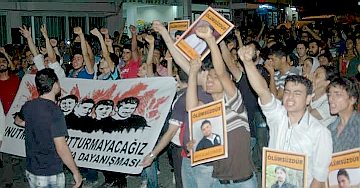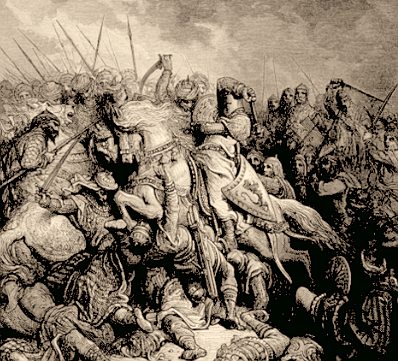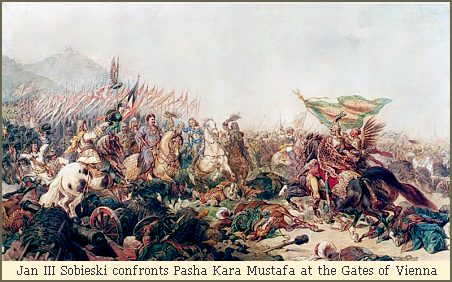This post is the fourth in a series about the Turkish definition of the word “Islamophobia” presented at the OSCE meeting in Vienna on July 12, 2013. Previously: Part 1, Part 2, and Part 3.

To recap: this is the definition of Islamophobia provided by Umut Topcuoglu in July 2013. Emphasis has been added to thirteen words or phrases that deserve further attention:
Islamophobia is a contemporary form of racism and xenophobia motivated by unfounded fear, mistrust, and hatred of Muslims and Islam. Islamophobia is also manifested through intolerance, discrimination, unequal treatment, prejudice, stereotyping, hostility, and adverse public discourse. Differentiating from classical racism and xenophobia [sic], Islamophobia is mainly based on stigmatization of a religion and its followers, and as such, Islamophobia is an affront to the human rights and dignity of Muslims.
The first seven highlighted terms were discussed in Part 3. The analysis of the final six is below.
8. Prejudice
“Prejudice” is another loaded word that demands extra scrutiny in light of its frequent misuse. We may assume that Mr. Topcuoglu, in formulating his definition of “Islamophobia”, had in mind this definition of prejudice:
| 2c: | an irrational attitude of hostility directed against an individual, a group, a race, or their supposed characteristics |
The following is an excerpt from lessons that are taught to ninth-graders using Hadith, a recent Saudi school text: [1]
When God sent his Prophet Muhammad, He abrogated with his law all other laws and He commanded all people, including the people of the book, to believe him and to follow him. The people of the book should have been the first to believe him because they find him in their scriptures.
The clash between this Muslim nation and the Jews and Christians has endured, and it will continue as long as God wills. In this hadith, Muhammad gives us an example of the battle between the Muslims and the Jews.
The above passage narrates Abu Hurayrah, as recorded by Bhukari and Muslim, who are also the most authoritative and second most authoritative hadith scholars respectively, for the following: [2]
Narrated by Abu Hurayrah: The Prophet said, “The hour [of judgment] will not come until the Muslims fight the Jews and kill them. It will not come until the Jew hides behind rocks and trees. It will not come until the rocks or the trees say, ‘O Muslim! O servant of God! There is a Jew behind me. Come and kill him. Except for the gharqad, which is a tree of the Jews.’”
An objective observer cannot help but note that these passages, taken from scriptural texts confirmed as authoritative by the consensus of Islamic scholars, display irrational hostility towards both Jews and Christians (the former constituting a race as well as a religious group). This demonstrates that the core sacred writings of Islam contain evidence of racial and religious prejudice against Jews and Christians.
This is not to say that there may not also exist prejudice against Muslims among non-Muslims. However, we are ill-served by an overwhelming institutional emphasis on one type of sectarian prejudice when others — amply attested both by the historical record and by current events — are almost completely neglected.
9. Stereotyping
This is another loaded word that is commonly used to stigmatize anyone who criticizes — or even simply observes and comments on — the behavior of members of a designated “protected” group.
The dictionary tells us that “stereotyping” is the making of a stereotype:
| 2: | something conforming to a fixed or general pattern; especially: a standardized mental picture that is held in common by members of a group and that represents an oversimplified opinion, prejudiced attitude, or uncritical judgment |
Determining exactly what constitutes an “oversimplified opinion” requires a very subjective judgment. How much can an opinion be simplified before it is “oversimplified”? How much generalization about a distinct group is allowed before it becomes a “prejudiced attitude”?

 The secretary of the Arab League praised the Russian-U.S. accord on Syria’s chemical weapons, saying that it puts the region on track to a political solution. Meanwhile, with the likelihood of a military attack decreasing, Syrian students have returned to school. The rebels, however, are angry about the agreement.
The secretary of the Arab League praised the Russian-U.S. accord on Syria’s chemical weapons, saying that it puts the region on track to a political solution. Meanwhile, with the likelihood of a military attack decreasing, Syrian students have returned to school. The rebels, however, are angry about the agreement.





